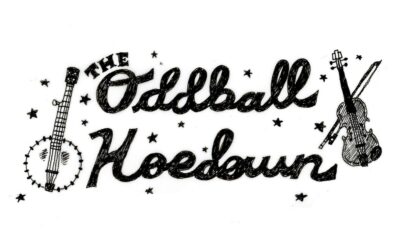Not many fairy tales have been set in the Midwest, but Jasmine Sawers, who lives outside of St. Louis, draws on its history and their own mixed heritage in their debut story collection The Anchored World: Flash Fairy Tales and Folklore. Sawers also pulls from the Western fairy tales (à la Hans Christian Andersen) they grew up reading, as well as legends and folktales from Thailand, where they spent the summer when they were ten. But the flash stories in this collection do more than simply bring Eastern and Western tales together. They challenge what is often at the core of such stories: along with valuing honor, cunning, kindness and intelligence, Sawers noticed the Thai and Western tales alike contain racism, colorism, sexism, heteronormativity, greed and classism. Through their recognition comes this extraordinary collection that challenges and subverts old tropes.
In the Author’s Note, Sawers writes, “Fairy tales are often the first stories that will teach us what stories can do.” And the stories in this collection do so much — deconstructing the prejudiced underpinnings of fairy tales and building a new framework. They’re similar to Helen Oyeyemi’s work in that way, but by also integrating Eastern legends and embracing the flash form, Sawers is completely original. Immensely smart in its bold confrontation of form, the compilation of flash stories, some a mere paragraph, offers a fresh reimagining for what fairy tales can be. The Anchored World was a finalist for the PEN/Robert W. Bingham Prize for Debut Short Story Collection, an achievement for any book, but a considerable feat for a weird slim book from a small independent press.
The individual stories are delightfully unique and humorous: there’s a retelling of “Thumbelina” where the protagonist, Hazel, has found her husband in a can of Spam; a tale of someone who has a goat inside their heart; and a title story which is a mashup of multiple tales, including “Jack and the Beanstalk” and Thai folklore. An index at the end of the book offers the origin for those stories based on fairy tales or legends, but many — and arguably the most compelling — are those in the vein of a fairy tale, but which transcend convention. In a story that needs a content warning, even for its title, “How to Commit Suicide,” Sawers uses the form of a list to weave a tale of domestic violence and gaslighting. The title is jarring (mental health activists have pushed for replacing ‘commit’ with ‘die by’), but the use of the anachronistic term seems intentional. It’s clear from these stories that Sawers is intimately familiar with the flash form, a genre where each word is chosen with care. And Sawers sometimes leverages the use of insensitive, even offensive words, such as in “All Your Fragile History,” a two-and-a-half page story told through a single sentence, which is about a person of mixed heritage getting their dog a DNA test rather than one for themself. The story uses humor to spin what becomes a brutal tale of racism and colorism, with its viciousness especially felt in the rapid succession of racial slurs the narrator has been called.
Some of the stories test the boundaries of fairy tales, such as “An Incomplete List of My Rodent Qualities, as Compiled by My Ex-Boyfriend When He Still Loved Me.” The list-form story is like “How to Commit Suicide,” with its hints at abusive relationship dynamics. But a fairy tale can be a cautionary story, as well as full of magic and enchantment. “Synergy Cooperative HousingTM and You!” begins, “Welcome to your new home! Don’t worry about the goblins that live in the walls.” It’s a contemporary horror story with a dash of gruesomeness, tempered by Sawers’ signature humor. There’s so much variety in these stories, but one thing they share is that the prose is gorgeous, poetic and sparse. An example from the last story, “The Gingerbread Cycle”: “The trick for troublesome mouse-types nibbling at your house, disturbing your hard-won peace, is a hot oven and the heartiest vegetables from your garden, a cage of bones, the howl of your loneliness transforming your touch into brambles, your hunger into fangs, your softness into brittle dough that cracks like thunder before it crumbles.”
The Anchored World is wholly original and full of enchantment. Sawers marks themself as a spellbinding writer willing to take risks and push the boundaries of convention, and the result is thrillingly new fairy tales for a contemporary readership.



